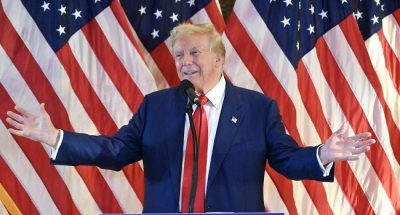Democrats seek to draw rural voters away from Trump

Democrats, reinvigorated by the presidential candidacy of Kamala Harris, are honing a message to woo rural voters away from Republican Donald Trump.
In a ballroom on the sidelines of the Democratic National Convention in Chicago, campaign workers and lawmakers gathered Tuesday to hash out ideas on bridging the “rural-urban divide.”
“The secret to winning over rural voters: talk to them about their schools, about their roads, about health care,” said Laura Kelly, the Democratic governor of deeply Republican Kansas.
“Show up, not just for pictures,” Kelly told the gathering.
Participants received a manual from a project dubbed “The Rural Urban Bridge Initiative” with advice on how to bring rural voters into the Democratic fold.
“Display patriotism and local pride of place at campaign events,” it recommends. “Convert town halls into listening sessions. Talk like a neighbor.”
The meeting featured signs reading “Kowgirls for Harris” and other tributes to the vice president and former senator from California who replaced President Joe Biden at the top of the Democratic ticket.
Democrats have struggled to attract rural Americans since the 2016 presidential election, when Trump defeated Hillary Clinton, largely on the strength of rural and working-class voters who had historically voted Democratic but switched sides.
The party is determined to try to reverse the trend in November.
“This is the first year that our party has been really active about this,” said Diane Snyder, a Democratic official in a largely Republican county in North Carolina. “We are knocking on doors and people are surprised so we’re proud of that.”
The initiative is particularly important in North Carolina, one of a handful of US states that could decide the White House race between Harris and Trump on November 5.
- ‘Have a tough conversation’ –
Trump has sought to portray the 59-year-old Harris as a “socialist” and a member of a West Coast elite out of touch with the reality of Americans living outside the big cities in the countryside.
Harris’s choice of Minnesota Governor Tim Walz, a plain-speaking Midwesterner and former high school teacher and football coach originally from Nebraska, to be her running mate was clearly an effort to try to counter this narrative.
Walz, 60, will officially accept the vice presidential nomination and deliver a speech to delegates from around the country at the third day of the convention on Wednesday.
“He is so authentic, he’s so real,” said Heidi Heitkamp, a former Democratic senator from Minnesota neighbor North Dakota.
“I think that he adds that sense of balance to the ticket,” said Patricia Walsh, a Democrat who lives in a part of Alaska so isolated that she was unable to organize delivery of campaign T-shirts on time for the convention.
She drew up her own on site instead.
Walz’s wife Gwen received a warm ovation when she turned up at the “rural-urban” panel around mid-day to address the participants.
“We taught in rural Nebraska,” she said of her husband, adding to laughter that she “grew up in a community twice the size of Tim Walz’s.”
“Let’s convince people, one at a time, community by community” to vote for Harris over Trump, she said. “Volunteer, bring a friend, have a tough conversation
(AFP)

